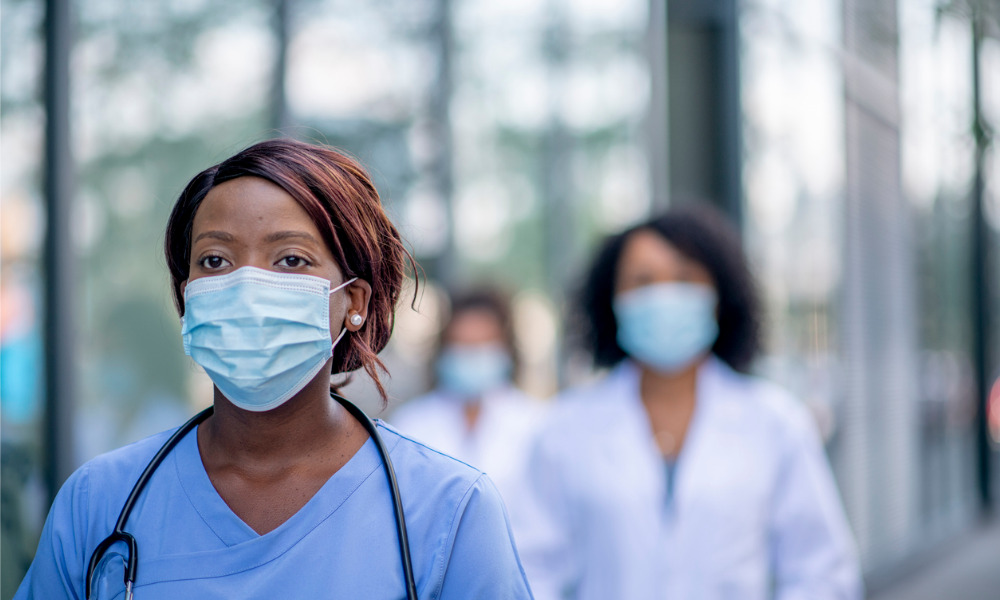Workplace safety crucial for healthcare workers facing anti-vax protests

You’d have to be living under a rock if you haven’t heard about the recent incidents taking places at hospitals around the country.
Health care workers (along with patients and caregivers) are trying to access their place of work despite anti-vax protests, facing the potential of harassment or bullying while trying to do their job.
It’s somewhat reminiscent of the times when violence arises around picket lines at unionized workplaces.
Or the high-profile incidents a few years back when TV reporters faced harassment from onlookers. A Hydro One engineer gained (presumably unwelcome) notoriety back in 2015 after he and other soccer fans yelled sexually explicit taunts at a female TV reporter.
While the employer initially said the employee was terminated for violating its employee code of conduct, the engineer was later rehired after arbitration.
Now we have health care workers outside of their workplace facing potential obstacles.
“Let the health care workers continue to do their work, unencumbered,” said Michael Warner, ICU physician at Michael Garron Hospital in Toronto, in a Twitter video. “People are entitled to protest, and to make their voices heard. At the same time, hospitals are not the place to do it. Hospitals are sacred places of healing. It’s where people go for safety, protection…”
And various groups are calling for greater protections, including the Ontario Medical Association and Canadian Medical Association.
“The health-care workers who have worked tirelessly for months on end are being bullied and harassed for doing their jobs. This is wrong and unacceptable – full stop. We are in a health crisis of unprecedented proportions.”
Who’s responsible for worker safety?
So, who should be held responsible for these workers’ safety?
Hopefully employers themselves are stepping up, considering it’s their staff who are facing the brunt of the protests. London Health Sciences Centre's (LHSC) Victoria Hospital, for example, is apparently is boosting security, according to the CBC.
Workers can also protect themselves by refusing to do their work if they consider it an unsafe environment, says a legal expert speaking with Canadian HR Reporter.
Toronto Mayor John Tory called the demonstrations “irresponsible… misdirected… and abusive.”
But words are not enough, according to Raghu Venugopal, emergency physician at Toronto General Hospital, who called on the municipal and provincial governments to enact bylaws to protect “the sacred ground” of hospitals.
More recently, Prime Minister Justin Trudeau promised that the Liberal party, if elected, would make it a criminal offence to block access to buildings that provide health care, whether it’s hospitals, clinics, pharmacies and testing centres.
“Hospitals are having to put up barricades today to manage the mobs coming their way. It is not OK, any day, to know that a nurse going into a late shift, crossing a parking lot, might be afraid that there’s someone there to spit on her or shout obscenities at. That’s not OK and Canadians want to stand up for our health care practitioners… We’re going to make it a criminal offence for anyone to threaten or intimidate any health care practitioner on their way into work… or a patient on their way to get medical services.”
That would place enforcement in the hands of police, which isn’t ideal considering the resources and logistics required. But the most important thing is that these highly valuable workers are able to do their job without fear of violence or abuse --- particularly after a very stressful year-and-a-half that is still ongoing.




